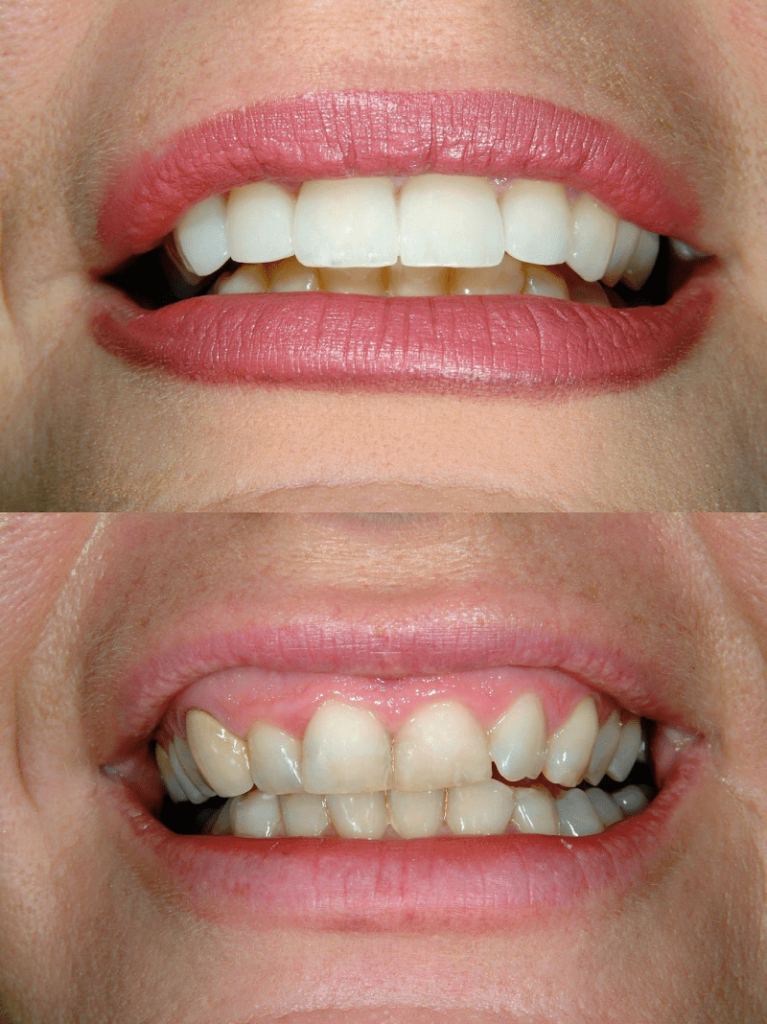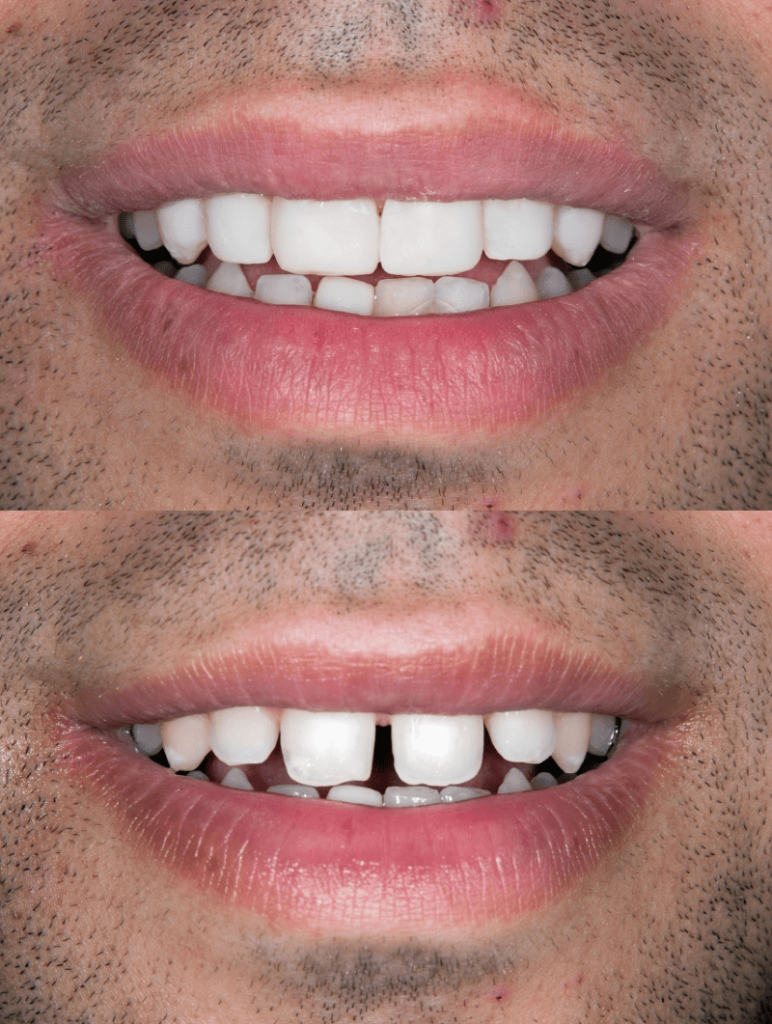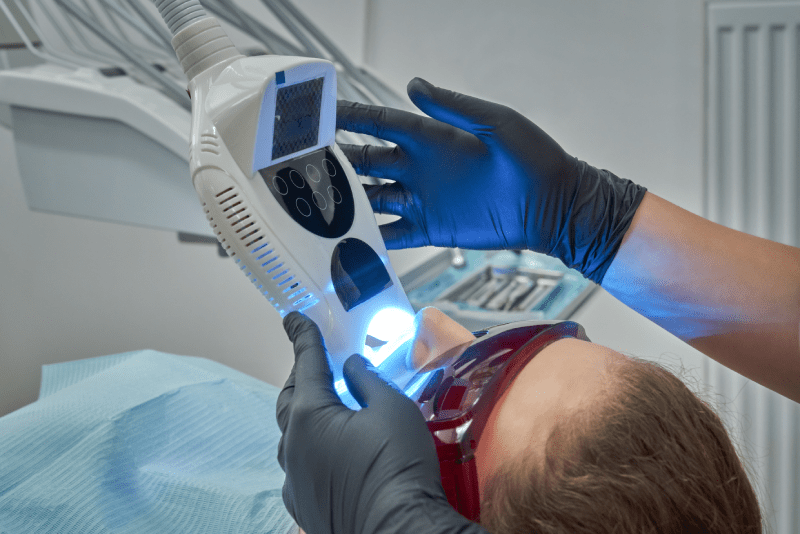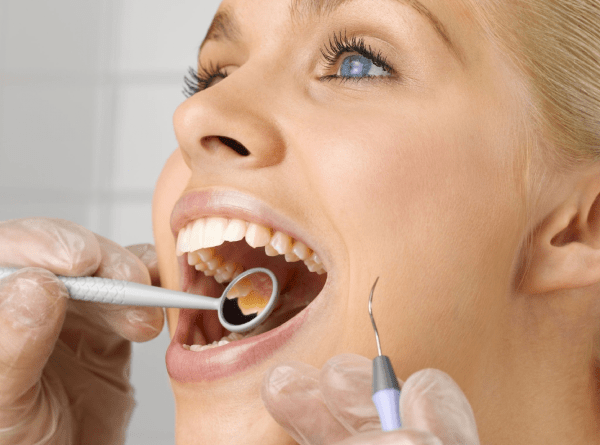All Dental Treatments and Costs in Turkey
What are Dental Treatments?
Dental health plays a vital role in our overall well-being, and dental treatments are essential for maintaining a healthy smile. From preventive care to restorative and cosmetic procedures, dental treatments encompass a wide range of services provided by dental professionals. This article aims to shed light on the different types of dental treatments available and their significance in achieving optimal oral health.
Good oral hygiene and regular dental check-ups are crucial for preventing dental problems and maintaining a healthy mouth. However, despite our best efforts, dental issues can still arise, requiring professional intervention. Dental treatments encompass various procedures performed by dentists to address common oral health concerns and improve the appearance of teeth.
Importance of Dental Treatments
Dental treatments are essential for several reasons. Firstly, they help prevent and treat dental problems, which, if left untreated, can lead to more severe complications. Secondly, dental treatments play a significant role in maintaining oral hygiene, which contributes to overall health. Lastly, these treatments can enhance the aesthetics of the teeth, improving self-confidence and quality of life.
- Common Dental Problems
There are several common dental problems that people may experience. Understanding these issues can help individuals recognize the importance of seeking dental treatments when necessary. Some of the most prevalent dental problems include:
- Tooth Decay
Tooth decay, also known as dental caries or cavities, occurs when bacteria in the mouth produce acids that erode the tooth enamel. This can lead to the formation of small holes or cavities in the teeth, causing pain and sensitivity.
- Gum Disease
Gum disease, or periodontal disease, is an infection of the tissues surrounding and supporting the teeth. It is primarily caused by poor oral hygiene, resulting in swollen, red gums, gum recession, and potential tooth loss if left untreated.
- Bad Breath
Bad breath, medically known as halitosis, can be embarrassing and indicative of underlying dental issues. It is often caused by poor oral hygiene, gum disease, or certain medical conditions, and can be effectively treated through proper dental care.
- Tooth Sensitivity (continued)
Tooth sensitivity refers to the discomfort or pain experienced when consuming hot, cold, sweet, or acidic foods and beverages. It can be caused by exposed tooth roots due to gum recession, enamel erosion, or tooth decay. Dental treatments can help alleviate tooth sensitivity and improve overall oral comfort.
- Tooth Loss
Tooth loss can occur due to various reasons, including decay, gum disease, trauma, or aging. Missing teeth not only affect one’s appearance but also impact speech, chewing ability, and oral health. Dental treatments offer solutions such as dental implants, bridges, or dentures to restore a complete and functional smile.

What are Dental Crowns?
Dental crowns, also known as caps, are prosthetic restorations that are designed to cover and encase a damaged or weakened tooth. They are custom-made to match the shape, size, and color of the natural teeth, providing a durable and aesthetically pleasing solution. Dental crowns are commonly used in restorative dentistry to strengthen and protect teeth that have undergone significant decay, fracture, or other forms of damage.
The Purpose of Dental Crowns
Dental crowns serve multiple purposes, making them a versatile treatment option in dentistry. Some of the key purposes of dental crowns include:
- Protection and Strengthening: Dental crowns are used to provide protection and reinforcement to teeth that have been weakened due to decay, fractures, or extensive fillings. By covering the entire visible portion of the tooth above the gumline, crowns can restore the structural integrity and prevent further damage.
- Restoration of Tooth Shape and Size: Crowns are carefully crafted to match the natural shape and size of the tooth they are replacing. They can effectively restore a tooth’s proper dimensions, ensuring proper alignment and bite function.
- Enhancement of Tooth Appearance: Crowns are custom-made to blend seamlessly with the surrounding teeth in terms of color, shape, and texture. They can improve the appearance of a tooth by covering stains, discoloration, or other cosmetic imperfections.
- Support for Dental Bridges: Dental crowns can be used as anchor points for dental bridges. They are placed on the adjacent teeth to support the artificial teeth, ensuring stability and functionality.
- Restoration of Dental Implants: Dental implants, which are titanium posts surgically placed in the jawbone to replace missing teeth, are often capped with dental crowns. This combination provides a natural-looking and functional replacement tooth.
Dental Crown Prices in Turkey
Dental crown prices in Turkey can vary depending on several factors, including the type of crown, the dental clinic or provider, the location, and the complexity of the case. While it is difficult to provide an exact cost without considering these variables, we can provide a general idea of the average prices for dental crowns in Turkey.
In Turkey, the cost of a dental crown typically ranges from $150 to $600 per tooth. It’s important to note that this price range is an estimate and may vary based on individual circumstances. The type of crown chosen can affect the cost as well. Porcelain-fused-to-metal (PFM) crowns are usually more affordable compared to all-ceramic or zirconia crowns, which tend to be higher in price due to their superior aesthetics and durability.
It’s essential to keep in mind that dental tourism is popular in Turkey, with many individuals traveling from abroad to seek affordable dental treatments. This has led to competitive pricing and high-quality dental services being available at relatively lower costs compared to other countries.


What are Dental Implants?
Dental implants are advanced restorative dental devices used to replace missing teeth. They are designed to mimic the structure and function of natural teeth, providing a durable and long-lasting solution for individuals with tooth loss. Dental implants consist of three main components: the implant fixture, the abutment, and the dental crown.
The Components of Dental Implants
Implant Fixture: The implant fixture is a small titanium post that is surgically placed into the jawbone. It acts as the root of the missing tooth and provides a stable foundation for the restoration. Titanium is used for the implant fixture due to its biocompatibility, allowing it to fuse with the surrounding bone through a process called osseointegration.
Abutment: The abutment is a connector piece that is attached to the implant fixture. It protrudes above the gumline and serves as a link between the implant fixture and the dental crown. The abutment is usually made of metal or ceramic and provides support and stability for the crown.
Dental Crown: The dental crown is the visible part of the dental implant. It is custom-made to match the color, shape, and size of the natural teeth. The crown is securely attached to the abutment and serves as a functional and aesthetically pleasing replacement for the missing tooth.
Dental Implant Prices in Turkey
Dental implant prices in Turkey can vary depending on several factors, including the location, the dental clinic or provider, the type of implant system used, the number of implants needed, and any additional procedures required. While it is challenging to provide an exact cost without considering these variables, we can provide a general idea of the average prices for dental implants in Turkey.
In Turkey, the cost of a single dental implant typically ranges from $700 to $1,500. This price range is an estimate and may vary based on individual circumstances and the specific clinic or provider chosen.
It’s important to note that dental implant prices in Turkey are often more affordable compared to many other countries. This has contributed to Turkey’s popularity as a dental tourism destination, with individuals from around the world seeking high-quality dental treatments at competitive prices.
What are Dental Bridges?
Dental bridges are fixed dental prostheses used to replace one or more missing teeth. They are designed to bridge the gap created by missing teeth, providing a functional and aesthetic solution. Dental bridges consist of artificial teeth, known as pontics, which are supported by dental crowns or implants on either side of the gap.
Types of Dental Bridges
There are several types of dental bridges, and the most suitable option depends on various factors, including the location of the missing teeth, the condition of the adjacent teeth, and the patient’s oral health. The common types of dental bridges include:
Traditional Dental Bridges: Traditional dental bridges are the most common type and are typically used when there are natural teeth on either side of the gap. The pontic (artificial tooth) is supported by dental crowns placed on the adjacent teeth, which act as anchors to hold the bridge in place.
Cantilever Dental Bridges: Cantilever bridges are used when there is only one natural tooth adjacent to the gap. The pontic is supported by a dental crown on the adjacent tooth, providing stability on one side.
Maryland Dental Bridges: Maryland bridges, also known as resin-bonded bridges, are primarily used for replacing missing front teeth. The pontic is held in place by a metal or porcelain framework bonded to the back of the adjacent teeth. This type of bridge preserves the structure of the adjacent teeth as it does not require extensive tooth preparation.
Implant-Supported Dental Bridges: Implant-supported bridges are an option when multiple adjacent teeth are missing. Dental implants are surgically placed into the jawbone, and the pontic is supported by the implants, providing stability and function similar to natural teeth.
Dental Bridge Prices in Turkey
The cost of dental bridges in Turkey can vary depending on several factors, including the type of bridge, the number of missing teeth to be replaced, the dental clinic or provider, the location, and any additional procedures required. While it is challenging to provide an exact cost without considering these variables, we can provide a general idea of the average prices for dental bridges in Turkey.
In Turkey, the cost of a dental bridge typically ranges from $500 to $1,500 per tooth. This price range is an estimate and may vary based on individual circumstances and the specific clinic or provider chosen.
It’s important to note that dental bridge prices in Turkey are often more affordable compared to many other countries. Turkey has become a popular dental tourism destination, attracting individuals from around the world seeking high-quality dental treatments at competitive prices.
What is Tooth Whitening?
Tooth whitening, also known as teeth bleaching, is a cosmetic dental procedure that aims to lighten the color of the teeth and remove stains and discoloration. It is a popular treatment option for individuals who desire a brighter, more radiant smile.
The Tooth Whitening Procedure
Tooth whitening can be performed through various methods, both in-office by a dental professional or at home using dentist-supervised kits. Here are the two common methods of tooth whitening:
In-Office Tooth Whitening, this procedure is performed by a dental professional and typically involves the following steps:
Preparation: The dentist will assess the current shade of your teeth and discuss your desired results. They may take photographs or create impressions of your teeth for comparison after the treatment.
Application of Whitening Agent: A protective barrier is placed over your gums to shield them from the whitening agent. The dentist then applies a concentrated bleaching gel or solution directly to the teeth. In some cases, a special light or laser may be used to activate the whitening agent.
Multiple Sessions (if necessary): Depending on the desired level of whitening and the severity of discoloration, the procedure may involve multiple sessions. Each session typically lasts about 15-30 minutes.
Monitoring and Aftercare: The dentist closely monitors the progress of the whitening treatment and ensures that your teeth and gums remain healthy throughout the process. After the treatment, they may provide you with post-whitening care instructions and recommendations to maintain the results.

Teeth Whitening Prices in Turkey
The cost of teeth whitening in Turkey can vary depending on several factors, including the location, the dental clinic or provider, the method of teeth whitening chosen, and any additional services included in the treatment. While it is difficult to provide an exact cost without considering these variables, we can give you a general idea of the average prices for teeth whitening in Turkey.
In Turkey, the cost of teeth whitening treatments typically ranges from $100 to $400. This price range is an estimate and may vary based on individual circumstances and the specific clinic or provider chosen.
Is it Safe to Have Dental Treatment in Turkey?
Turkey has gained a reputation as a popular dental tourism destination, attracting individuals from around the world seeking affordable and high-quality dental treatments. Many dental clinics and providers in Turkey uphold international standards of care and offer advanced dental technologies and techniques.
While dental treatment in Turkey can be safe and of high quality, it is essential to exercise caution and conduct thorough research when selecting a dental clinic or provider. Here are some factors to consider regarding the safety of dental treatment in Turkey:
- Qualified and Experienced Professionals: Ensure that the dental clinic you choose has qualified and experienced dentists and dental specialists. Look for professionals who have received their education and training from reputable institutions and have a track record of performing successful dental procedures.
- Licensing and Certification: Check if the dental clinic and its dentists are licensed and registered with the appropriate authorities in Turkey. This ensures that they meet the required standards and regulations for providing dental care.
- Facility Hygiene and Sterilization: Pay attention to the cleanliness and hygiene practices followed by the dental clinic. Ensure that they maintain proper sterilization protocols for equipment and instruments to prevent the risk of infections.
- Patient Reviews and Testimonials: Read reviews and testimonials from previous patients who have undergone dental treatment in Turkey. Their experiences can provide insights into the quality of care and safety standards upheld by the dental clinic.
- Communication and Language: Ensure that the dental clinic staff can communicate effectively in a language you understand. It’s crucial to be able to communicate your concerns, expectations, and medical history to the dental team for a safe and personalized treatment experience.
- Comprehensive Treatment Planning: A reputable dental clinic in Turkey should provide a thorough and comprehensive treatment plan, explaining the procedures, costs, and potential risks involved. They should also address any questions or concerns you may have regarding the treatment.
- Dental Tourism Facilitators: If you choose to use a dental tourism facilitator or agency to arrange your dental treatment in Turkey, research their background, reputation, and the services they offer. Ensure they work with reputable dental clinics and prioritize patient safety.
Why are Dental Treatments Cheaper in Turkey?
Dental treatments in Turkey are often more affordable compared to many other countries. Several factors contribute to the lower cost of dental treatments in Turkey:
- Lower Operational Costs: The cost of running a dental clinic in Turkey, including rent, utilities, and labor, is generally lower compared to countries with higher living expenses. This allows dental clinics in Turkey to offer competitive prices for their services.
- Favorable Currency Exchange Rates: Currency exchange rates can significantly impact the cost of dental treatments for international patients. In Turkey, the Turkish Lira (TRY) is often more favorable compared to major currencies such as the US Dollar or Euro. This means that individuals from countries with stronger currencies can benefit from cost savings when seeking dental treatments in Turkey.
- Lower Cost of Education and Training: The cost of dental education and training for dentists in Turkey may be relatively lower compared to certain other countries. This can influence the overall cost structure of dental clinics, as dentists may have lower student loan burdens or expenses related to their education, resulting in more affordable treatment prices.
- Lower Cost of Materials and Lab Services: The cost of dental materials and laboratory services, such as dental implants, crowns, and dentures, may be lower in Turkey due to factors such as local manufacturing capabilities and lower production costs. This can contribute to overall cost savings for dental treatments.
- Government Incentives for Medical Tourism: The Turkish government has actively promoted medical tourism, including dental tourism, by offering incentives to attract international patients. These incentives may include tax advantages, subsidies, and support for the development of medical tourism infrastructure, which can help lower the overall cost of dental treatments.
- Competition among Dental Clinics: The presence of a large number of dental clinics in Turkey has created a competitive environment. To attract patients, dental clinics often offer competitive pricing, discounts, and package deals, making dental treatments more affordable.
It’s important to note that despite the lower cost, many dental clinics in Turkey maintain high standards of care and utilize advanced dental technologies. However, when considering dental treatments in Turkey, it is crucial to research and choose a reputable dental clinic or provider that upholds international standards of quality and patient safety.
Best Dental Treatments in Turkey: Why Choose Kusadasi?
Turkey is renowned for its high-quality and affordable dental treatments, attracting individuals from around the world. Kusadasi, a beautiful coastal town in Turkey, offers several advantages as a destination for dental treatments. Here are some reasons why you may consider choosing Kusadasi for your dental needs:
- Quality Dental Care: Kusadasi is home to numerous dental clinics and providers that offer excellent quality dental care. Many dental professionals in Kusadasi have received their education and training from reputable institutions and possess extensive experience in providing a wide range of dental treatments. They utilize advanced technologies and follow international standards to ensure top-notch dental care.
- Affordable Treatment Costs: One of the primary reasons people choose dental treatments in Turkey, including Kusadasi, is the affordability. Dental treatments in Kusadasi are often more cost-effective compared to many other countries. The lower operational costs, favorable currency exchange rates, and competition among dental clinics contribute to the affordability of dental treatments in Kusadasi, making it an attractive option for individuals seeking quality care at reasonable prices.
- Dental Tourism Infrastructure: Kusadasi has developed a robust dental tourism infrastructure to cater to international patients. The town offers a range of accommodation options, transportation services, and tourist attractions, creating a convenient and enjoyable experience for dental tourists. Dental clinics in Kusadasi often provide support with travel arrangements, accommodation, and local transportation to ensure a smooth and comfortable stay.
- Beautiful Coastal Location: Kusadasi’s stunning coastal location adds to the appeal of receiving dental treatments in the town. Patients can enjoy the picturesque beaches, explore historical sites like Ephesus, and immerse themselves in the vibrant local culture. This combination of dental care and a relaxing holiday experience makes Kusadasi an enticing choice for dental tourism.
- English-Speaking Dental Professionals: Communication is vital when receiving dental treatments in a foreign country. In Kusadasi, many dental professionals and staff members speak English fluently, ensuring effective communication and understanding between patients and dentists. This language proficiency helps facilitate a comfortable and stress-free treatment experience.
- Safety and Hygiene Standards: Dental clinics in Kusadasi adhere to strict safety and hygiene standards to ensure patient well-being. Many clinics follow international protocols for sterilization, infection control, and patient safety. It is essential to research and choose reputable dental clinics in Kusadasi that prioritize patient care and maintain high standards of safety and hygiene.
When considering dental treatments in Turkey, Kusadasi stands out as a favorable destination due to its combination of quality dental care, affordability, dental tourism infrastructure, beautiful location, English-speaking professionals, and commitment to safety and hygiene.
